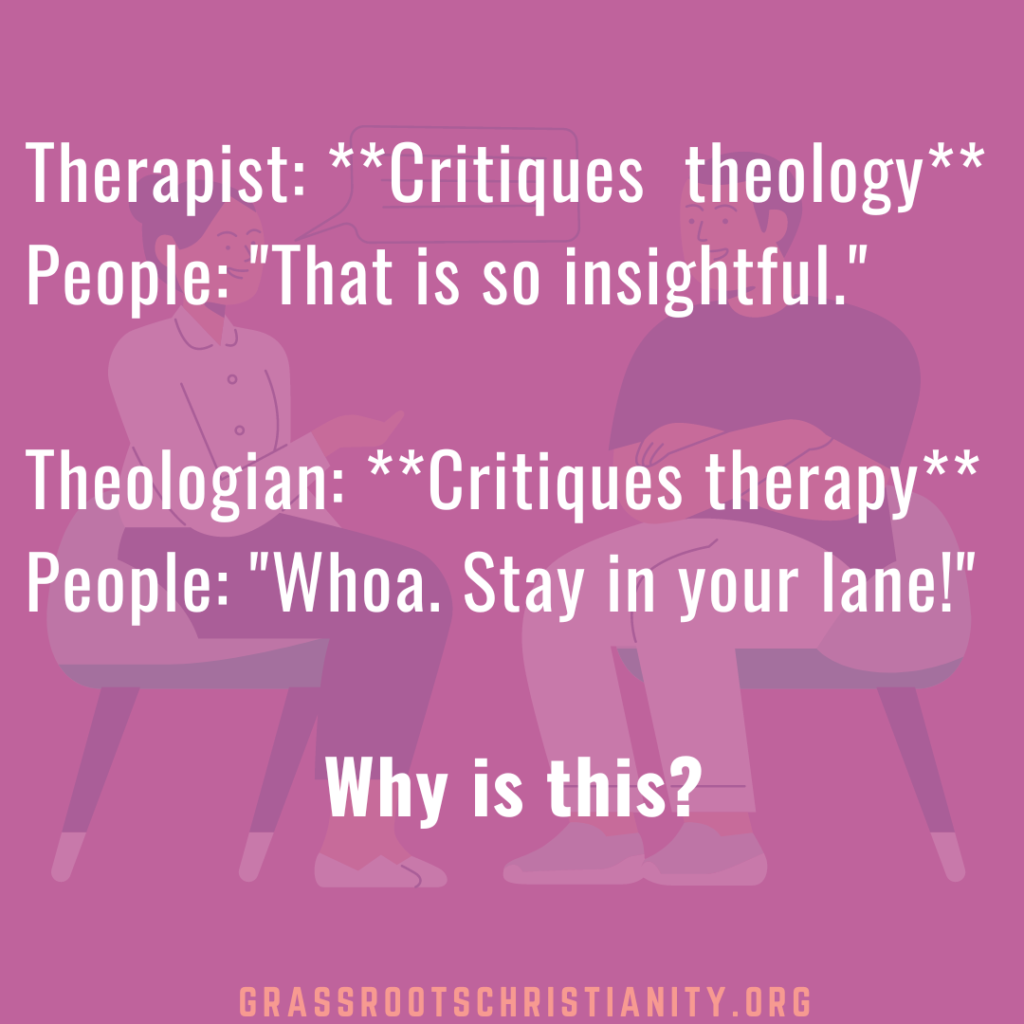The easy answer is that Christianity has lost its authority through abuse and the deeper shifts into post-Christendom.
But I think this is also an example of the deepening realities of our “therapeutic culture”.

Therapeutic Culture…
In this therapeutic culture, religious doctrines (in the field of theology) are seen as “really just” human products. And therefore they are best understood as individual or communal pyschic impulses, expressions, repressions, or defenses in relation to the “sacred”.
Accordingly, mental health professionals have free range to discuss theology because they are the best equipped to understand human psychology.
Conversely, theologians (and pastors) are disqualified at the outset to comment on or critique therapeutic theory or practice because of their (obvious) defensive delusions make them believes these things (doctrinal realities) actually exist beyond the human mind.
In this context I see an Upton Sinclair quote passed endlessly: “It is difficult to get a man to understand something when his salary depends on his not understanding it.”
This “therapeutic culture” is creating an inevitable reduction of everything to the play of psychic forces, which even Christian therapists and theologians and pastors are prone to bow.
Like I often say, I’m all for therapy…but it is the therapeutic culture that I worry about.
A Better Way
It would be better for theologians and therapists to talk together and learn together without collapsing each others fields into the other (making all psychology into theology, or all theology into psychology).
Related: God is Not Just An Internalized Parent.
What I’m not saying…
Now, nothing I’ve said means I’m trying to minimize the hurt and abuse that people have suffered in churches. All that is horribly wrong and people need to be held accountable.
And I’m certainly not saying therapy and psychology are bad (I’ve hosted 36 episodes about the intersection of neuroscience, psychology, and spiritual formation).
And I’m not denying unfortunate reality that a large segment of the American church is still critical of psychology.

